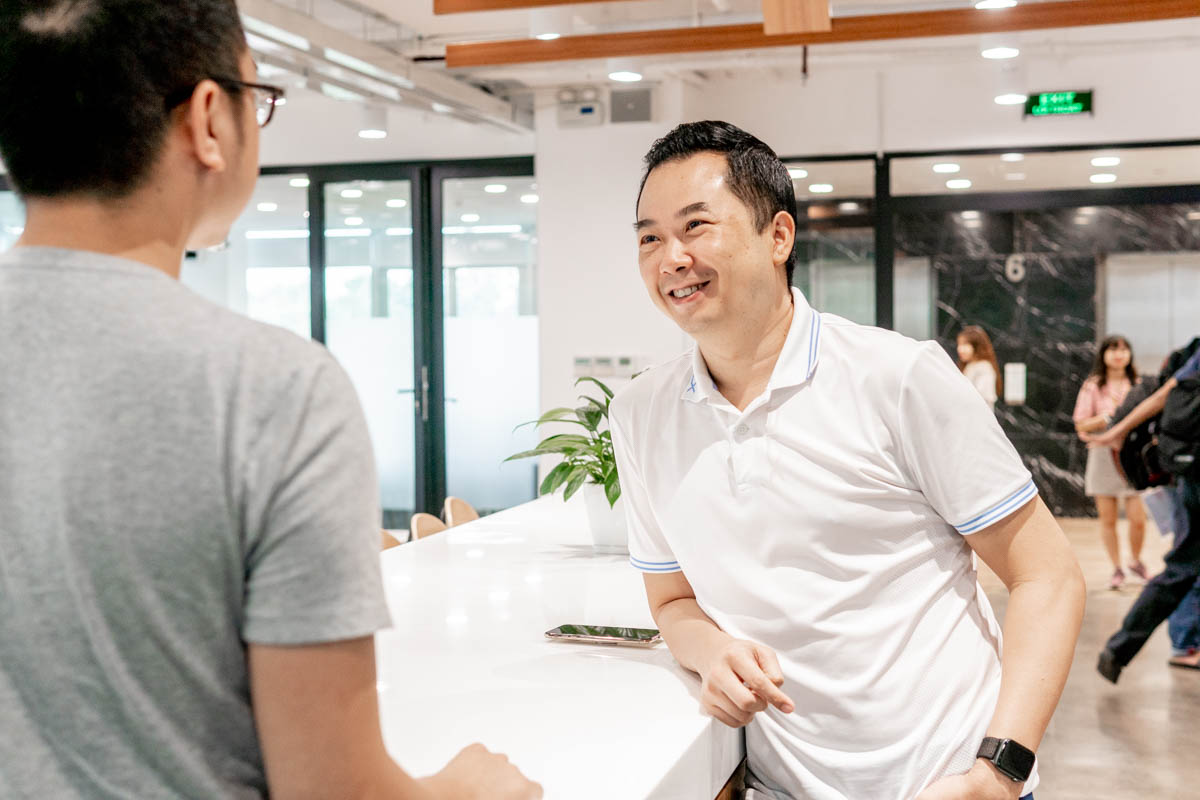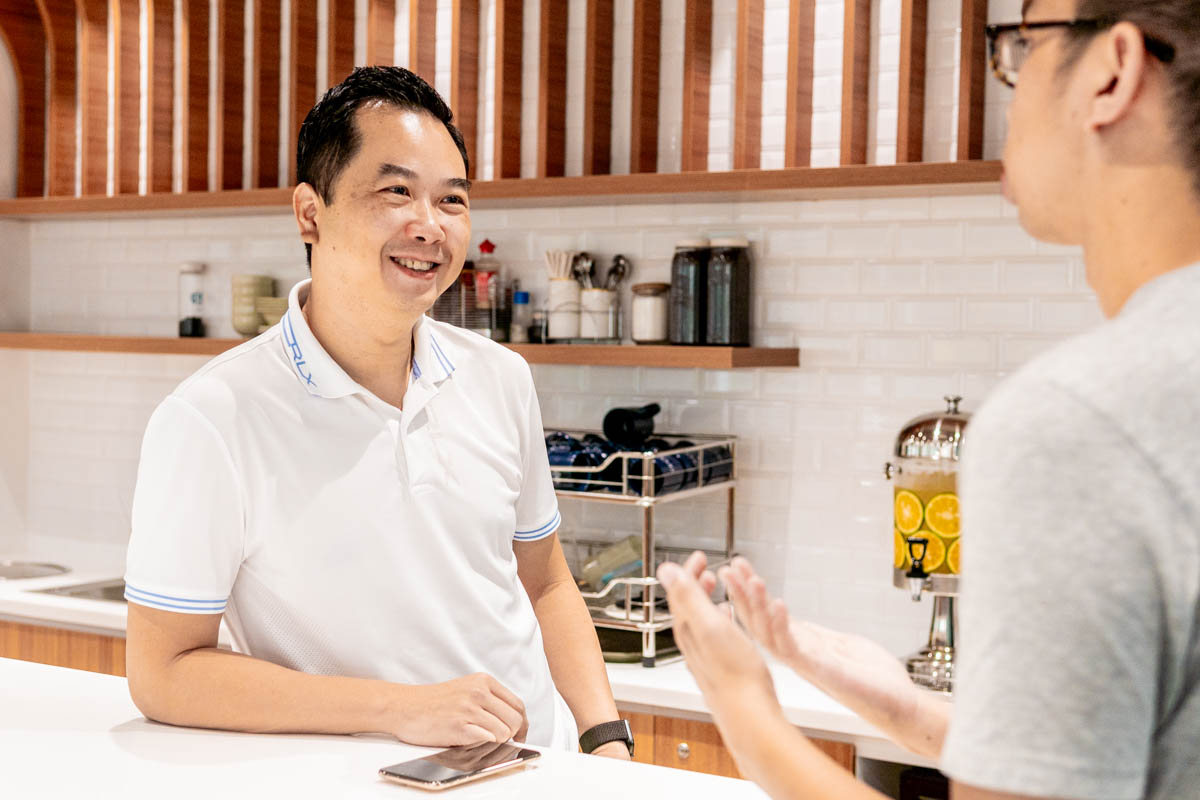Vietnam’s booming economy continues to draw the focus of global investors. Businesses that previously found opportunities in China are seeking safe haven from the trade war and now find themselves in Vietnam. And they are some of the biggest drivers of the country’s growth. Yet, there is an increasing gap that separates these larger investors and the average individual retail investor from getting involved. Both foreign and domestic investors crave access to a slice of Vietnam’s growth. And real estate continues to be a primary talking point.
We meet with one startup involved in the proptech and fintech industries, RealStake, led by entrepreneur James Vuong. Vuong explains how his team can help democratize real estate in Vietnam and across the Southeast Asia region to make investment possible for everyone.

What is RealStake’s mission?
RealStake’s mission is to make real estate investment accessible, safe, and easy.
What problems will RealStake solve in Vietnam and around the region?
We solve three problems in our markets: access, risk reduction, and efficiency.
Many people in Southeast Asia and Vietnam, even those with high income but not yet rich, are not unable to invest in real estate because the investment amount is much higher than their income. In some markets, the mortgage is much larger than the rental yield of the property. With a mortgage rate greater than 10 percent in Vietnam, your rental yield and a lot of your gain will be swallowed up by interest payments. If there is a market downturn, it’s quite risky. You might not be able to continue making payments and can lose your home.
With our model, anyone can invest a flexible amount, as low as $1,000 USD, without taking out a jumbo loan with high interest. Essentially, our platform allows many people to invest in one property together, with each owning a fractional share that is entitled to gains and rental income. RealStake enables someone making $1,000 USD a month the opportunity to own a piece of a high-end apartment in the center of booming cities like Ho Chi Minh City, Bangkok, Jarkata, and so on.
In the region, including Vietnam, the process of researching real estate, what type to buy, which developer, which area, at what price point, is overwhelming due to a lack of transparency, unreliable data, and bad actors. The buying and selling process are met with many unethical or unfair practices and people. This is not to mention the hassle of managing the properties. On RealStake, properties are carefully vetted by our real estate experts and approved by an independent real estate committee consisting of experts in the industry to ensure the property has minimal risk, good yield, and/or high potential capital gain upside. New investments and exits from investments can be made on the platform with RealStake taking care of the rest. For the investor, the process is simple: it’s money in, money out regularly from rental income, and money out when you fully exit.

Why does the real estate industry in Southeast Asia need disruption?
Real estate is one of the least technology disrupted industries in the world, not just in Southeast Asia. This has started to change and a new chapter is coming. In the US, REIT (Real Estate Investment Trust) is a trillion dollar industry, yet in Southeast Asia, there is almost no REIT with the exception of Singapore. Retail investors have very limited ways to access real estate investments. While you can use an app to have milk tea at a shop downstairs in your building delivered right to your door, you still can’t do much online when it comes to real estate investment. Even offline, the process of choosing, buying, managing, and selling properties is time consuming, costly, and full of risks.
Can you explain to us how the process works?
You get on RealStake, select an investment option, enter the amount you want to invest, transfer money in and it’s done. You make your gain from an increase in the price of the property over time (and thus the price of your share) and from the property’s rental income. We manage the property for you, rent it out, and distribute the income back to you every quarter. When you want to exit, you can sell your share to others on our platform, find buyers outside and notify us, or sell the whole property if 70 percent of the shareholders approve. In the first year of operating, to ensure liquidity for our investors, RealStake guarantees to buy back the shares.
Who are your typical customers on RealStake?
Our typical customers are those called HENRYs (high earning, not rich yet). These are people that want to invest in real estate but can’t due to the obstacles I have talked about. More specifically, our customers are educated, white collar, feel comfortable buying products online, use online sharing economy services like Grab, Airbnb, and WeWork, transfer money or invest online. Our goal is to make it so easy to invest that anyone with a desire to access good investment opportunities can fulfill that need on our platform. It might mean they call into our hotline first or chat with us on Facebook.

What are some other industries in Vietnam and around the region that you see needing technology disruption?
Software is eating the world and it’s increasingly eating many traditional industries, including retail, financial, real estate, and insurance. Technology might be transforming those industries a bit later in Southeast Asia and Vietnam compared to the developed world, but it’s definitely coming very soon.
How would you categorize RealStake in the technology scene?
We’re at the intersection of the proptech and fintech categories. We’re also part of the sharing economy. Instead of sharing usage of an asset, however, we’re allowing people to share ownership and profits or economic gains from an asset.
Can you share with us your previous experience in the Vietnam startup scene? What motivates you to start this new venture?
In 2008, I left Silicon Valley to come back to Vietnam to join IDG Ventures. IDG was the first venture capital fund in Vietnam with a maiden fund of $100M. I made investments out the fund for six years. At that time, there was not much going on for us to raise a second fund and I got the entrepreneurial itch again, so I decided to create a startup called Lana. We acquired the largest online community and launched a baby app as well as an e-commerce site. We failed at e-commerce, but the digital media business did well and a few years later, we were acquired by LINE Corp.

The motivation for this new venture came from three places. First and most important of all, I have always believed that people should have the right to access all available investment opportunities. The typical argument made against this motivation is that regular people don’t know enough to make good investment decisions. While it’s true we don’t want grandma to lose her savings investing in things she doesn’t understand, young people now, with the Internet at their fingertips, have a lot more knowledge than the previous generations. They can quickly search for information about it or ask others on social media.
Secondly, like everything else, isn’t it true that the best way to be good at something is having a chance to learn and try it out? Isn’t it better to try out small amounts when you are young and eventually get good at it? Finally, the way others are trying out real estate investments is by taking out a big loan from family and friends or from a bank with an insane interest rate and speculating on land. We need to provide consumers with a safer way.
Another inspiration came from seeing how my wife, whose passion is residential properties, being able to make use of the Internet and many US-based platforms to invest in Silicon Valley properties remotely from Vietnam. It begs the question, why is it not possible for others to easily and safely access Southeast Asian real estate investment opportunities?
The third inspiration came from a shareholder of my previous company, Calvin Lam. After the company was acquired, Calvin asked me if I was going on to start a new company so he could invest. At the time I said no, as I had nothing concrete yet. Afterward, when we had dinner together, he said he didn’t know what to do with the gain from the previous company. Jokingly, Calvin shared that he didn’t want his family to buy more homes as to make sure there’s money available for the next startup opportunity. The guy was actually serious, so his vote of confidence encouraged me to run the idea by him and a few other experts in the real estate industry in the region. The idea started to take form and the name “RealStake” came to mind. And that’s how it got started.

Who should we speak with next?
I definitely want to do a shout out to our angel investors at RealStake who have been helpful and incredibly supportive. Though venture capital and startups are my domain, I am a newbie in the real estate industry. But I was able to see further because I stood on their shoulders. As for an entrepreneur Vietcetera should speak with next, I would definitely recommend Calvin Lam, one of our angel investors involved in a number of businesses including retail and food and beverage.
Related Content:
[Article] Real Estate In Vietnam: The High Rise Future Of Ho Chi Minh City
[Article] Real Estate in Vietnam: Five Ho Chi Minh City Real Estate Developments to Watch



